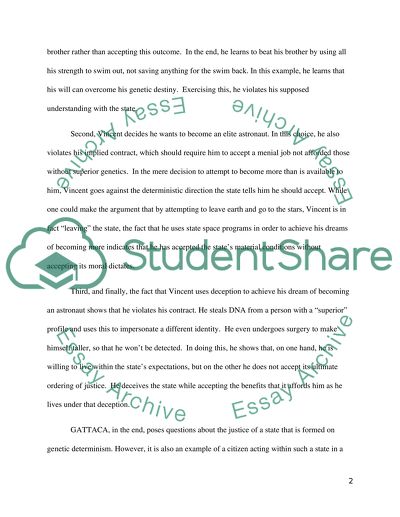Cite this document
(“GATTACA film Essay Example | Topics and Well Written Essays - 1000 words”, n.d.)
Retrieved from https://studentshare.org/philosophy/1437231-gattaca-film
Retrieved from https://studentshare.org/philosophy/1437231-gattaca-film
(GATTACA Film Essay Example | Topics and Well Written Essays - 1000 Words)
https://studentshare.org/philosophy/1437231-gattaca-film.
https://studentshare.org/philosophy/1437231-gattaca-film.
“GATTACA Film Essay Example | Topics and Well Written Essays - 1000 Words”, n.d. https://studentshare.org/philosophy/1437231-gattaca-film.


